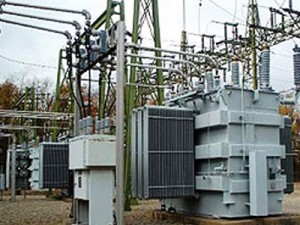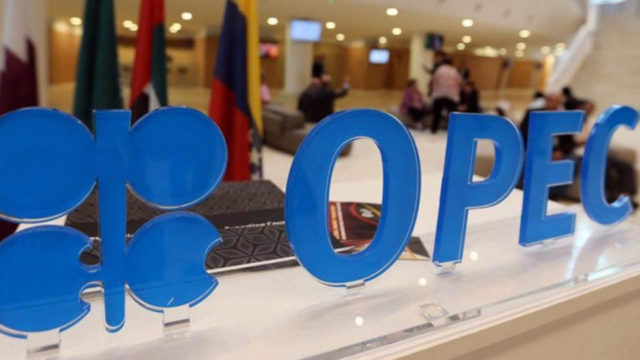Nigeria’s Petroleum, Power Sectors Under ‘Change’ Mantra

Since the inception of the new administration, better days seem to be ahead for the nation’s power, oil and gas sector. Though, power supply is still far less than the country requires to drive economic growth, there has been appreciable improvement in electricity generation since June this year.
Also, the on-going clean up at the Nigerian National Petroleum Corporation (NNPC), has been seen as a move that will transform the country’s oil and gas sector.
The country’s power sector has recorded remarkable improvement in the last few months, with generation and supply reaching 5,000mw.
According to the Transmission Company of Nigeria (TCN), power generation in the country reached an all-time high of 4,810.7MW on August 25, 2015.
Specifically, the country generated 4,159.03 mega watts per hour (mw/h) as at September 20, while total energy sent out in the same period stood at 4,068.87mw/h.
Also, the country recorded peak energy generated electricity of 101,839mwh while peak energy sent out stood at 100,162.92mwh as September 9.
This new development represents a major departure from what was obtainable in the past, when it hovered around 2,000MW and sometimes dipped below that.
The TCN said it reached the current level as result of coordinated efforts by operators.The Managing Director, System Operation/Market Operation, Dipak Sarma, said, “This has been made possible due to a coordinated effort of the TCN with the generating companies and the distribution companies.”
Chairman of Nigerian Electricity Regulatory Commission (NERC), Sam Amadi, disclosed plans to step up the current electricity generation to 6000 mw by December.
Amadi said: “We saw in June, how generation capacity went as low as 2000mw, but later went up to 4.700mw.Commenting on the improvement in power supply, President of Lagos Chamber of Commerce and Industry (LCCI), Remi Bello, stated: “The first is the improvement in power supply, which has been widely acknowledged across all sectors of the economy and households. In the last one month, the expenses on fuel either PMS or diesel has reduced either by businesses or households”.
Also, the country’s oil and gas sector have witnessed remarkable improvement with the clean up of the Nigerian National Petroleum Corporation (NNPC) and the petroleum sector in general.
President Muhammadu Buhari began the clean up in the country’s petroleum sector by the sack Dr. Joseph Thlama Dawha as the Group Managing Director of NNPC and named Dr. Emmanuel Ibe Kachikwu, the Executive Vice Chairman and General Counsel of Exxon Mobil (Africa) as his replacement.
Barely 24 hours after Dr Emmanuel Ibe Kachikwu was appointed as the new GMD of NNPC, the new helmsman announced the sack of the eight Group Executive Directors (GEDs).
Kachikwu continued the cleanup process by terminating the country’s Offshore Processing Agreements and inviting companies for fresh bid.
Few days later, the corporation set up four new crude oil swap contracts to replace those cancelled.
Following directives from the president, the corporation banned 113 oil tankers from the country’s waters as part of efforts to crack down on illegal crude oil trading.
Two months after being sworn in as the president of the country, Buhari vowed to implement far-reaching reforms to boost accountability and transparency in Nigeria’s oil and gas industry.
Three out of Nigeria’s four oil refineries in Nigeria have resumed activity and are operating at between 60 per cent and 80 per cent of their capacity two months after Buhari took over as the country’s president.
According to NNPC, two in Port Harcourt and one in Warri, Delta State – started working again after undergoing a rehabilitation program. The fourth refinery, in Kaduna, Kaduna State, is expected to resume activity soon.
Setting agenda for the present administration, Natural Resource Governance Institute, in its report titled: “Nigeria Oil Sector Reforms: An Agenda for the Buhari Administration”, called for the passage of the pending amendment to the Nigerian Extractive Industries Transparency Initiative (NEITI) Act 2007.
This, it said, would allow access to data on oil company payments, costs and earnings, so that the government can more accurately project revenue earnings and improve regularity of NEITI audit reports.
Also needed, the international watchdog said, is the publication of contracts, restraint from undue political interference in NNPC affairs, and agreement on mechanisms for funding the corporation’s operations.
“The government must also put a stop to NNPC’s use of alternative finance arrangements, which could be accomplished through a ban on cash calls for non-joint venture operations.
It said that the reform focus of the regulatory, transparency and accountability cluster should cover preparation and issuance of regular policy statements on companies’ conduct of self-assessment of their Petroleum Profit Tax (PPT) liabilities.
It also urged the government to review the eligibility criteria for licensing oil marketing and trading companies to close identified gaps in the operation of the Petroleum Support Fund.







